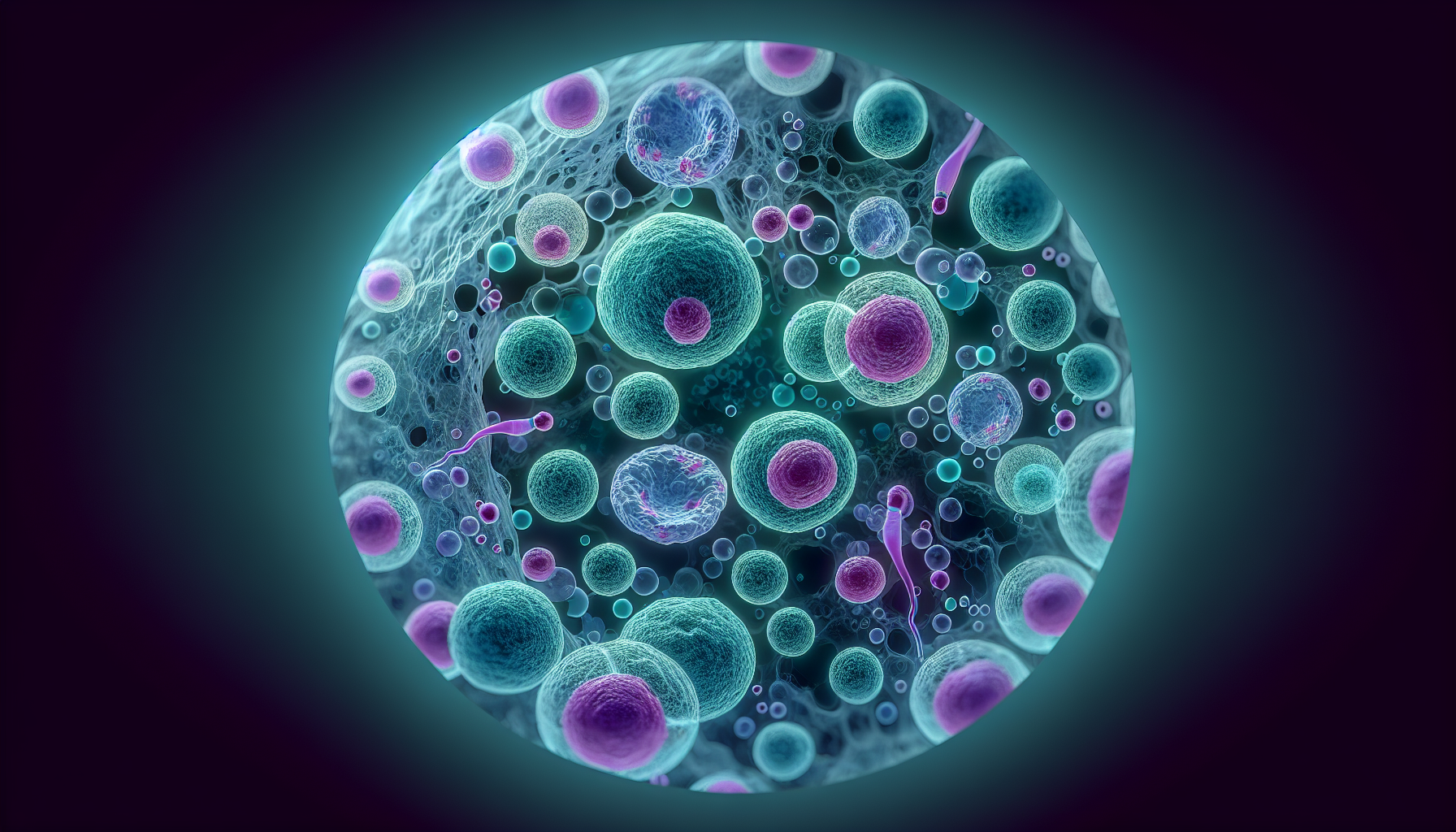New Strategies in Treating CLL: Navigating BTK Inhibitor Progression
Key Takeaways
- Venetoclax rechallenge shows promise for CLL patients who previously responded well.
- Genetic testing is crucial to tailor the most effective treatment strategies.
- Ongoing research is essential for optimizing treatments for double-refractory CLL patients.
Did You Know?
Introduction to CLL and BTK Inhibitors
Chronic lymphocytic leukemia (CLL) is a type of cancer that affects the blood and bone marrow. It is characterized by the production of an excessive amount of abnormal white blood cells. Standard treatments for CLL have significantly improved over the past decade, especially with the introduction of Bruton's tyrosine kinase (BTK) inhibitors.
BTK inhibitors like ibrutinib and acalabrutinib have revolutionized CLL therapy by interrupting the B-cell receptor signaling pathways, which are critical for the survival and proliferation of CLL cells.
Challenges Following BTK Inhibitor Progression
Despite the effectiveness of BTK inhibitors, patients can eventually become resistant, leading to disease progression. When this happens, alternative treatments are necessary. Dr. Sanjal Desai, a leading oncologist, highlights the complexity of developing effective treatment strategies post-BTK inhibitor progression.
Research shows that the genetic landscape of CLL becomes more heterogeneous after BTK inhibitor resistance develops. This means the genetic mutations in CLL cells vary widely among patients, making it challenging to find a one-size-fits-all treatment.
Exploring Venetoclax as a Rechallenge Option
Venetoclax, also known as Venclexta, is another promising drug for treating CLL. It works by selectively targeting and inhibiting the BCL-2 protein, which helps the cancer cells survive. Dr. Desai discusses the feasibility of using venetoclax again in CLL patients who have previously been treated with and responded to this drug.
According to retrospective studies, about two-thirds of patients who progress on BTK inhibitors respond to venetoclax, with an average of two years of progression-free survival. This points to the potential of rechallenging patients with venetoclax.
The Importance of Genetic Testing
Genetic testing plays a critical role in determining the best treatment strategy for CLL patients. Mutations in genes like TP53 can influence the effectiveness of treatments. Patients with TP53 mutations might benefit more from BTK inhibitors, even after initial treatment failure.
By understanding the genetic makeup of the disease at the time of progression, doctors can tailor treatments that are more likely to be successful.
The Future of CLL Treatment
Looking ahead, more research is needed to fully understand how to optimize treatments for CLL patients who are double refractory—meaning they have progressed after both BTK inhibitors and venetoclax. New drugs and treatment combinations are being investigated to fill this gap.
One exciting area of research is the use of CAR T-cell therapy. This treatment involves modifying a patient's T cells to better recognize and kill cancer cells. Early data suggests that CAR T-cell therapy could offer long-term remission for some patients.
Conclusion
Dr. Desai emphasizes the need for ongoing research to develop new treatment strategies for CLL patients facing BTK inhibitor progression. The goal is to improve outcomes and provide durable remissions, giving patients better quality of life.
With the advances in genetic testing and novel therapies like CAR T-cell therapy, there is hope for more effective treatments in the near future.
References
- American Cancer Societyhttps://www.cancer.org/cancer/chronic-lymphocytic-leukemia.html
- Leukemia & Lymphoma Societyhttps://www.lls.org/leukemia/chronic-lymphocytic-leukemia
- National Cancer Institutehttps://www.cancer.gov/types/leukemia/patient/cll-treatment-pdq




